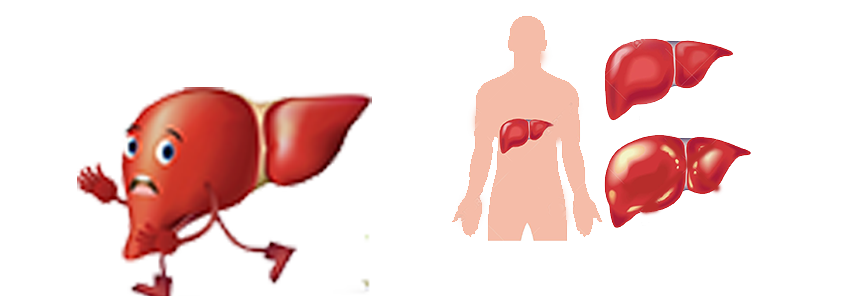Hepatitis

- Hepatitis A and E are transmitted by contaminated water and food. So poor sanitary and hygienic conditions help spread the infection. However these viruses do not lead to chronic hepatitis.
- Hepatitis B (with or without Hepatitis D) is transmitted by body fluid (unprotected sex, needle sharing, blood transfusion) and mother to fetus/child.
- Hepatitis C is transmitted by body fluid.
- Epstein-Barr virus.
- Herpes simplex virus.
- Human immunodeficiency virus (HIV).
- Anti tuberculosis drugs.
- Paracetamol (acetaminophen) overdose.
- Alcohol.
- Antiepileptic (valproate).
- Mushroom poisoning.
- Poor blood flow to the liver: due to low blood pressure or blockage in blood vessels cause ischemic hepatitis.
- Autoimmune hepatitis- body’s own defense system attacks the liver
- Hereditary: Wilson disease (excess copper deposition)
- Anorexia, vomiting and nausea.
- Jaundice.
- Pain upper abdomen.
- Rashes, arthritis and fever is seen in some patients.
- Jaundice.
- Disturbed sleep pattern.
- Confusion, agitation, abnormal behavior.
- Fits (seizures), unconsciousness.
- Lethargy.
- Abnormal bleeding.
- Blood test — can tell us the cause of hepatitis.
- Imaging — An ultrasound of the liver.
- All cases of hepatitis are managed with supportive care – Adequate hydration and nutrition.
- Stopping alcohol and drugs causing hepatitis.
- Antidote for toxin when available – Acetylcysteine for Acetaminophen toxicity.
- Antiviral medicine for Hepatitis B and C.
- Hepatitis during pregnancy requires close monitoring.
- Hepatitis A vaccine is available for children above one year of age. It is not included in the Expanded Program on Immunization (EPI) or most government-supplied vaccines yet. It is also used by travelers to endemic areas. Immunoglobulin is used before and after exposure to Hepatitis A when person is not previously immunized.
- Hepatitis B vaccine has been incorporated in EPI schedule. High risk adults including medical professionals, who haven’t been immunized previously need vaccination. In case of accidental needle-stick injury or newborn babies of Hepatitis B positive mothers, hepatitis immunoglobulin is needed.
- Hepatitis A and E can be prevented by avoiding contaminated water and food and by adopting proper sanitation and hygiene.
- Hepatitis B and C can be prevented by practicing safe sex habits, avoiding needle sharing and by screening blood before transfusions.
- Liver function should be checked before taking anti TB medications and patients should report any signs of liver disease to the doctor.
- Do not drink alcohol.
Hepatitis is an inflammation of the liver. Liver is one of vital organs and largest internal solid organ. Liver has large blood supply and functions as a chemical factory removing many unwanted substances from the body. This exposes liver to many insults including infections, drugs or toxins . When liver is inflamed, the levels of liver enzymes in blood is increased. Hepatitis is a common cause of jaundice, but may present without jaundice or any other symptoms.
There are many types of Hepatitis. These are identified as Hepatitis A, B, C, D, E and G.
Hepatitis can be acute (lasting less than 6 months) or chronic (lasting more than 6 months). It can be self-limiting without permanent liver damage or may cause a liver failure, cirrhosis of liver or liver cancer. Hepatitis E can be a serious disease during pregnancy.
Causes
There are several causes for hepatitis. The most common causes are listed below:
Viruses:
Drugs/toxins:
Other causes:
Symptoms
Hepatitis due to virus does not cause symptoms most of the time. Majority of those who have symptoms will recover — only small number progress to liver failure or chronic hepatitis. Some of the symptoms are:
When to seek care
If you notice any of the following signs, you should seek medical care:
Diagnosis
Hepatitis is diagnosed by history, physical exam and these tests:
Treatment options
Treatment of hepatitis depends upon its cause.
Preventive measures



Send us your feedback on this article